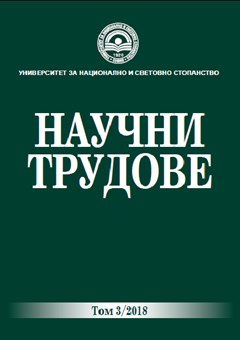Дигиталните умения в ЕС: клъстер анализ
Автори: Николай Величков, Кристина Стефанова
Digital Skills in the EU: Cluster Analysis
Nikolai Velichkov, Kristina Stefanova
Резюме
Целта на статията е да се изведат различията между държавите-членки в Европейския съюз по отношение на дигиталните умения сред населението, като наред с това се очертават и приликите между отделни държави, формиращи общ модел. Чрез приложението на метода на клъстер анализ се достига до извода, че степента на дигитална компетентност на населението може да се възприеме като съществен разграничителен белег за обособяването на отделни модели в рамките на ЕС. В същото време се доказва, че съществуват прилики между страни, които са със сравнително близко географско положение и сходна степен на икономическо развитие.
Abstract
This paper aims at drawing the distinctions between European Union member states with respect to the digital skills of the population along with identifying similarities among the different countries comprising a common model. The results of the applied cluster analysis method reveal that the degree of digital competence can be perceived as an important model-defining characteristic for the differentiation of individual models within the EU. At the same time, the obtained results demonstrate the existence of similarities among countries with relatively close geographic location and similar degree of economic development.
JEL: C38, P51, O33

